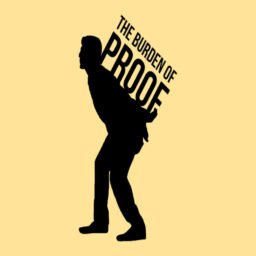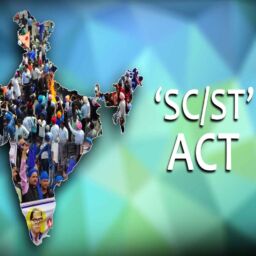INTRODUCTION
Legal education means developing skills and gaining knowledge in the field of law that also includes socio-culture education. For almost six decades, the idea of legal education has always been emphasized by the government. This emphasis can be witnessed through the setting up of the various legal institutions and government legal authorities governing legal education such as the University Grants Commission (UGC), The Law Commission and the Bar Council of India (BCI). The Supreme Court appointed a three-member committee and National Information Commission which advocated for legal education reforms, some of which have been implemented and others that are still in the works. It is, however, vital to comprehend the instructional methods used in Indian legal education.
The origins of modern legal education in India can be traced back to colonial times. The Bar Council of India regulates the legal education curriculum in both private and public educational institutions. The BCI provides two options for obtaining a law degree and then enrolling with either the State Bar Council or the Central Bar Council. The two degrees laid by the Bar Council of India are as follows:
- Pursuing a three year LLB programme that requires a bachelor’s degree.
- Pursuing a five year BA LLB/BBA LLB/B.Sc. LLB programme that begins right after high school.
Law students must take the Common Law Admission Test (CLAT), to get admission to the famous National Law Universities (excluding NLU Delhi). Students applying for the Delhi National Law University must take the All India Law Entrance Test (AILET). Rankings based on exam scores decide a student’s acceptance into these universities. Other colleges and universities secure student entrance by administering the Law School Admission Test (LSAT) or their private tests. With these components for admission to law school, it is important to investigate the varied pedagogical methods used by the majority of these legal institutions around the country.
PEDAGOGICAL TECHNIQUES
The three basic pedagogical techniques that are used to deliver legal education in Indian law schools. Those pedagogical techniques have been discussed as:
1. The Lecture Method:
The lecture method is a teacher-led, information-focused methodology in which the teacher serves as the sole guide within the classroom. The students, in this method essentially act as a passive listeners because the teacher is the only one who speaks in this method. It is commonly used by professors when dealing with legal terminology or explaining a legal theory or notion to the students. In law schools, it is the most commonly employed pedagogical method.
2. The Case Method:
The case method is also known as case-based pedagogy, which is used for helping students to enhance their ability to solve problems by applying legal knowledge, principles, ideas, and skills. These case scenarios could be made up or real. One of the evident examples of this method can be seen in almost every law school where the students are asked to read and debate the landmark case of KM Nanavati v. State of Bombay[1], which eloquently deals with the topic of a grave and sudden provocation, as part of the broad exclusions for the act of murder under Sec. 300 of the Indian Penal Code.
3. The Seminar Method:
The Seminar method is a kind of organization of the class which uses a scientific approach to analyse a problem that has been picked for discussion. It is a discussion-based teaching technique in which a small group of learners (no more than 25) work together to solve problems using the legal approach and analysis. It varies from the intellectual initiative because it is an organised, supervised discussion with the focus on the finding of new relationships by the participants. In the seminar, the student takes an active role. The use of this pedagogy technique has widely increased as it has been employed by legal educational establishments because of the recent ongoing COVID-19 epidemic.
Aside from that, the legal curriculum also includes several extracurricular activities in which students are expected to participate regularly, such as:
4. The Moot Court Competition
A type of mock court, similar to a court process, is used mostly in institutions and colleges where the law is taught as a subject to assess a student’s ability to defend a legal position according to their legal knowledge. A proper court scenario is created in which the students act as the counsels, for each side (Plaintiff and Defendant) on the analysis of evidence and substantive legal issues, arguing against each other to prove their point before the judge, who will then render his judgement in the same regard and declare the winner who has performed the best based on their legal understanding and analytical skills.
5. The Client Counselling
It promotes the experience and the participation of law students in the legal profession’s counselling function and the preventative law. It also develops the interviewing, organising, and analytical abilities that a lawyer requires when dealing with their clients one-on-one.
6. The Internships
A law firm internship is aimed to provide useful insight and real experience into the professional life of attorneys and judges to law students. They conduct research and create memos, handle case files, file and copy documents, attend client meetings, and attend trials, hearings, and arguments, among other things. It exposes law students to a wide range of individuals and situations. It assists law students in developing the skills required of a lawyer.
With the current legal curriculum in place, several mandatory adjustments must be implemented in order to improve legal education discourse in Indian institutions.
REFORMS IN INDIAN LEGAL EDUCATION
From the viewpoint of a student pursuing legal education currently, I would like to suggest certain reforms that are necessary for a better dispensing of the legal curricula in legal education. These are as follows –
- Reforms to improve the format of legal curricula so that students’ primary focus shifts from maintaining grades to learning how to apply the law in real-life situations. This can be accomplished by including legal theory-focused field trips that are not counted as internships.
- The introduction of law as a subject at the higher secondary level to ensure that students of all streams have a basic understanding of how the law works, because, in my opinion, a basic understanding of how the law works is necessary for all, regardless of the streams chosen by students pursuing other degrees. This will also lead to a better understanding of the functionality of the Indian Judiciary among society.
- Introducing Moot Court and Client Counselling in the standard legal curricula on the regular basis of Indian legal schools to assist students in developing the skills necessary for practical application of the law.
- Incorporating more case-based teaching into the standard curricula to help law students have a better understanding of the law.
- More emphasis should be placed on research-based activities such as fact-finding missions done by law students.
- Students should be given a forum by legal educational institutions to publish their research papers.
CONCLUSION
In conclusion, I would like to stress that the rule of law is the foundation of our civilization, and it is seen as a key medium for any type of revolution in our society because it is the only field that studies culture and its problems. Legal education has improvised in various ways in the previous decade, but there are still certain improvements that need to be made in order for it to be successful and justice-oriented.
Author(s) Name: Prateek Raushan (Student, Bennett University, Greater Noida)
References:
[1] K.M. Nanavati v. State of Bombay, AIR 1962 SC 605.
















